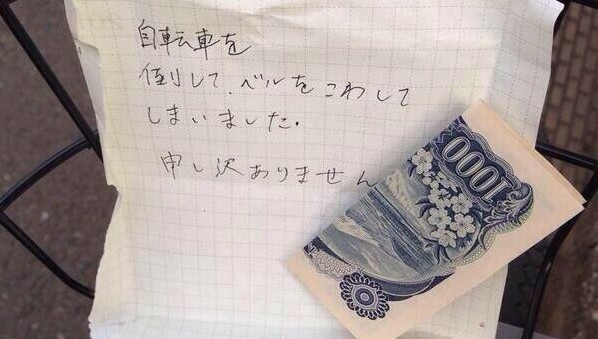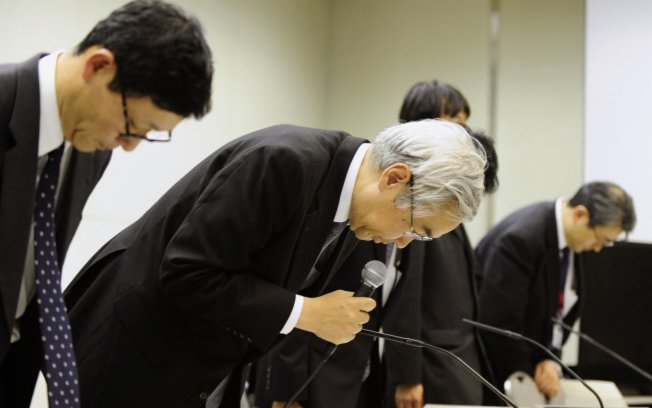Honesty is a quality admired in all cultures, but in Japan it reaches levels that surprise visitors and delight those who have the opportunity to experience the country. For the Japanese, being honest is not just a virtue, but a moral obligation deeply rooted in their way of life. This stance is reflected in daily actions, from returning lost items to government practices that prioritize transparency.
Although Japan is not free from issues such as corruption and isolated crimes, Japanese society stands out for the predominance of honest behaviors. This article explores some examples that illustrate how honesty is experienced in Japan and what we can learn from it to apply in our own lives.
Table of Content
Mujin Hanbai: Trade Based on Trust
In Japan, it is common to find booths known as Mujin Hanbai, small structures along the road where farmers sell fruits, vegetables, and other products. The curious detail? These booths do not have sellers. The products are made available to customers along with a small box for payment. Trust is the foundation of this system, and it is rare for someone to take the products without paying.
This reflects a collective mindset that prioritizes respect for others and a sense of community. While in many countries it would be unthinkable to trust the self-service system without supervision, in Japan it thrives. This practice is a reminder that individual honesty is essential for coexistence in society.
The Role of Education in Honesty
The honesty of the Japanese is fostered from an early age, with values taught in schools and reinforced at home. Children learn that lying or taking advantage is unacceptable, and this solid foundation shapes adult behavior. The result is a society where mutual trust is natural, strengthening human and economic relationships.

Honesty in Everyday Life: Lost and Returned Items
One of the most fascinating stories about honesty in Japan is related to the care for lost objects. If you forget your wallet or phone in a public place, there is a good chance you will recover them intact. In Japan, the concept of "finders keepers" has no place.
During the 2011 earthquake and tsunami, for example, more than 125 million dollars in cash was returned from the debris. From safes to bags filled with yen, the Japanese people handed everything over to the police, who worked hard to locate the owners.
A Revealing Experiment
In 2003, a law professor conducted an interesting experiment: he left 20 wallets on the streets of Tokyo and 20 on the streets of New York, all containing money. While in New York only six wallets were returned, in Tokyo the number reached 17. This example reinforces the idea that honesty is an integral part of Japanese culture, influencing the everyday attitudes of its citizens.

Piracy
What is not lacking in Brazil are stalls selling pirated DVDs and CDs. Then I think: "I don't want to collaborate with piracy; it's better to download from the internet." Know that in Japan, most people prefer to pay to download a song rather than download it for free on Google. Downloading music, movies, and series is seen as a crime; it truly is a crime. Both in Brazil and in Japan, this is still piracy.
One proof of this is that if you search for songs in Japanese, or anything else like books, movies, mangas... You will come across a shopping site, you might even find the download button, but when you click it, you'll have to shell out some yen. If you search in Japanese, it will be hard to find pirated media on the internet.
Some still prefer to buy the CD, DVD, CD-ROM instead of pirating. While in Brazil everyone is using the mp3 format with thousands of songs, the classic original CD is quite commercialized there.

Governance and Transparency: A Model to Follow
In Japan, even the rulers demonstrate a commitment to honesty that is rare in other countries. Although the country is not free from cases of corruption, the way these incidents are handled is exemplary. When politicians or authorities are caught in dishonest acts, many resign immediately, and some even resort to suicide due to the public shame they cannot bear.
After the 2011 tsunami, the government of Fukushima Province returned about 180 million reais that had been received for humanitarian aid. Instead of withholding the funds, as might be expected in other parts of the world, the authorities chose to return the unused money, reinforcing the image of a system committed to transparency.
Honesty: A Matter of Pride
Japanese law also plays an important role in maintaining honesty. For example, anyone who finds money or valuable items and does not return them may face severe legal penalties. This strictness creates an environment where honest behavior is not only expected but necessary.

Wrapping Up
The honesty of the Japanese goes far beyond a cultural trait; it is a daily practice that shapes society at all levels. Whether in the small fruit stalls without supervision or in the actions of politicians who return public funds, Japan teaches us that honesty is the foundation for a more just and harmonious coexistence.
Although each culture has its own characteristics, adopting some Japanese practices could positively transform our lives. Valuing others, returning what does not belong to us, and acting with transparency are universal lessons that start with small gestures and reflect great values.
And you? Have you experienced or heard of an exemplary situation of honesty? Share your stories and help inspire others to follow the same path!
